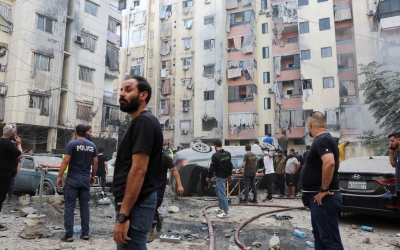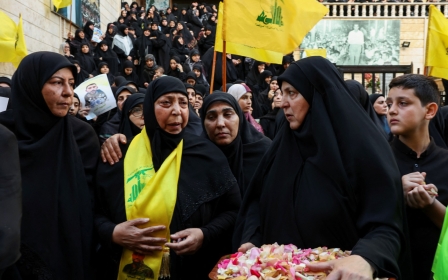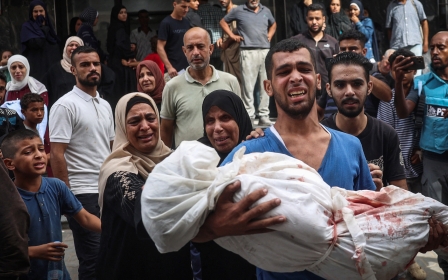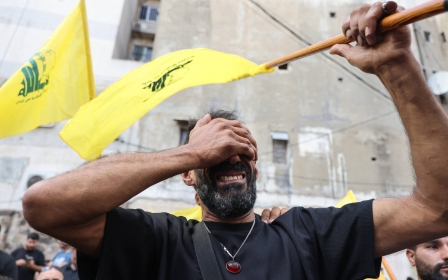Heavy Israeli strikes rock southern Lebanon as Hezbollah rockets hit Haifa
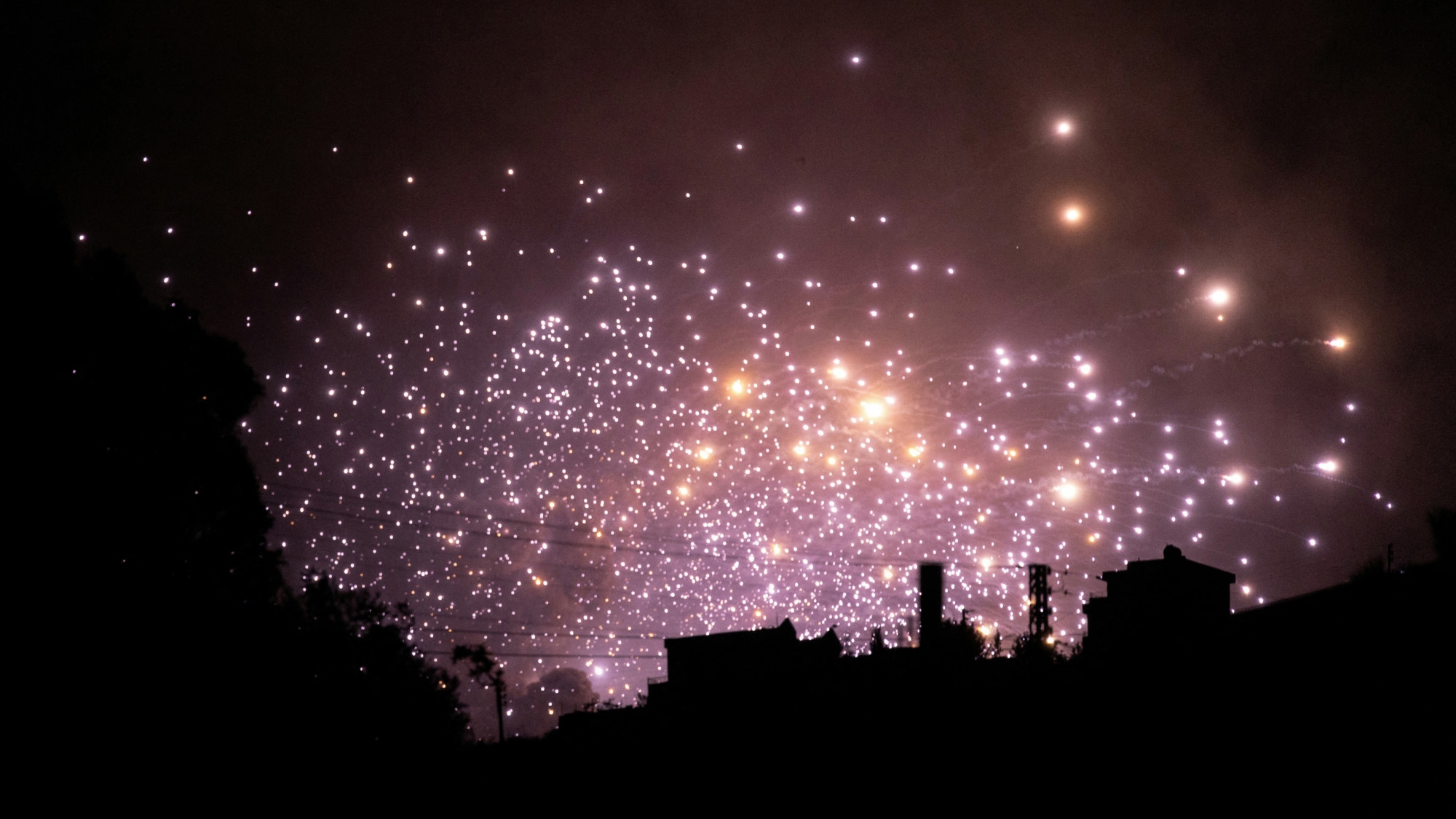
Israel carried out on Saturday and into Sunday some of the heaviest air strikes in southern Lebanon since hostilities with Hezbollah began nearly a year ago.
The Lebanese group meanwhile fired nearly 100 rockets towards northern Israel, including Haifa and other targets some 50km from the Lebanon boundary.
The Israeli military said it had struck dozens of Hezbollah “targets” in its large-scale air attack. There were no immediate reports of injuries.
Meanwhile, Hezbollah said it had targeted the Ramat David military airbase and the Rafael arms manufacturer in its rocket attack.
At least three people were wounded in the attack, according to Israeli media, with videos posted online showing damage caused by the rockets in several locations.
New MEE newsletter: Jerusalem Dispatch
Sign up to get the latest insights and analysis on Israel-Palestine, alongside Turkey Unpacked and other MEE newsletters
The Islamic Resistance in Iraq, an umbrella organisation of Iran-aligned armed groups, also fired missiles and drones towards Israel in tandem with the Hezbollah rockets.
An official with the organisation told Reuters that the Sunday dawn launches were part of "a new phase in our support front" with Lebanon.
"Escalation in Lebanon means escalation from Iraq," the official said.
Israeli forces have expanded its strikes on southern Lebanon, targeting the towns of Tayr Harfa, Sheihin, Jibeen, Zebqin, and Dahira, according to the National News Agency.
— Middle East Eye (@MiddleEastEye) September 22, 2024
Additional attacks were reported on the outskirts of Tafahata and al-Bissariya.
Hezbollah has vowed to… pic.twitter.com/BdcwhBikV6
The Israeli military said a total of 150 rockets, cruise missiles and drones had been launched at Israel from Lebanon and Iraq since Saturday night.
It said there were only “a handful of cases of direct impacts” and that the air defence system had a “high interception rate”.
The United Nations special coordinator for Lebanon, Jeanine Hennis-Plasschaert, warned the region was on the brink of “catastrophe”.
“With the region on the brink of an imminent catastrophe, it cannot be overstated enough: there is NO military solution that will make either side safer,” Hennis-Plasschaert said on X.
Major blow
The escalating exchanges of fire come two days after Israel bombed Beirut on Friday, killing 45 people, including at least three children, seven women and 16 senior Hezbollah military commanders.
The strike was a major blow to the group’s military leadership two days after a wave of pager and handheld radio blasts killed several group members and wounded thousands.
This ongoing conflict between Israel and Hezbollah, a movement born out of resistance to Israel's 1982-2000 occupation of south Lebanon, began the day after the 7 October Hamas-led attack on southern Israel.
Hezbollah has said it does not seek a large-scale war with Israel and will stop its rocket and artillery strikes, which it says are conducted in solidarity with the people under fire in Gaza, once a ceasefire is agreed upon between Hamas and the Israeli government.
The fighting has resulted in hundreds of Lebanese deaths, including civilians and Hezbollah fighters, as well as dozens of Israelis.
Tens of thousands on both sides of the border have been displaced. In Gaza, Israeli forces have killed more than 41,000 Palestinians.
Several countries, including Russia, Jordan and Egypt, have all said that Israel's attacks in Lebanon in recent days are an attempt to drag the Middle East into a broader regional war.
Middle East Eye delivers independent and unrivalled coverage and analysis of the Middle East, North Africa and beyond. To learn more about republishing this content and the associated fees, please fill out this form. More about MEE can be found here.


